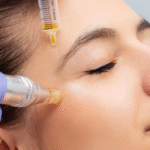Red wine has long been a topic of fascination and debate in the realms of health, nutrition, and lifestyle. With its deep hues, rich flavor, and cultural significance, red wine holds a place at dinner tables and social gatherings across the globe. But beyond its allure lies a pressing question: is red wine actually good for your health? Scientific research suggests that the answer is both yes and no, depending on how it is consumed and who is drinking it.
Red wine contains several compounds that are believed to offer health benefits. Chief among them are polyphenols, particularly resveratrol, flavonoids, and tannins, all of which act as antioxidants. These substances help neutralize harmful free radicals in the body, potentially reducing inflammation and lowering the risk of certain chronic diseases.
Resveratrol, found in the skins of red grapes, has attracted considerable attention for its potential cardiovascular benefits. Laboratory studies have shown that resveratrol may improve heart health by reducing bad cholesterol (LDL), preventing blood clots, and lowering blood pressure. However, it’s important to note that most of these studies used concentrated doses of resveratrol far higher than what is found in a standard glass of wine.
Heart Health and the “French Paradox”
The idea that red wine can be good for your heart is not new. Much of the enthusiasm stems from the so-called French Paradox—the observation that French people tend to have relatively low rates of heart disease despite consuming a diet rich in saturated fats. Some researchers attribute this to the moderate consumption of red wine, which is a staple in French culture.
Moderate wine drinking—usually defined as one 5-ounce glass per day for women and up to two for men—has been linked with a lower risk of coronary artery disease in several observational studies. The alcohol in red wine may raise HDL (“good”) cholesterol and improve blood vessel function, contributing to a healthier cardiovascular system.
Red wine, when consumed in moderation, may have a positive impact on male libido due to its antioxidant-rich composition and cardiovascular benefits. It contains compounds like resveratrol and flavonoids, which help improve blood flow and support heart health — both essential for healthy erectile function. Improved circulation enhances sensitivity and performance, contributing to increased sensual desire and stamina. Red wine in moderation might mildly help with circulation or relaxation, but it is not a substitute for Sildenafil Cenforce. Red wine and cenforce 100 mg are not the same and do not work in the same way, but there are some connections between them regarding blood flow and relaxation.
Diabetes, Longevity, and Cognitive Health
Emerging research has explored the impact of red wine on other aspects of health, including diabetes, brain function, and longevity. Some studies suggest that moderate red wine intake may enhance insulin sensitivity and reduce the risk of type 2 diabetes in certain populations. Others have found a correlation between wine consumption and a slower rate of cognitive decline in older adults, possibly due to the anti-inflammatory effects of resveratrol.
While moderate consumption may have benefits, red wine is still an alcoholic beverage, and excessive intake comes with serious health risks. High alcohol consumption is linked to liver damage, high blood pressure, increased risk of stroke, various cancers (especially breast and liver), and mental health issues such as depression and anxiety.
Furthermore, alcohol is addictive. What starts as moderate use can gradually escalate for some individuals, leading to dependency. The supposed health benefits of red wine do not outweigh the risks of alcohol misuse.
Red wine also contains sulfites, which can cause allergic reactions in sensitive individuals, and histamines, which may trigger headaches or other symptoms.
Who Should Avoid Red Wine?
Certain groups of people should avoid red wine altogether, including:
- Pregnant individuals
- People with liver disease or pancreatitis
- Those taking medications that interact with alcohol
- Individuals with a history of alcohol addiction
- Anyone under the legal drinking age
Studies suggest that moderate red wine consumption (1 glass per day for women, 1–2 for men) may also reduce stress and anxiety, enhancing Appetite. However, excessive intake can have the opposite effect, leading to hormonal imbalances, decreased testosterone in men, and sensual dysfunction. Alcohol abuse may also contribute to infertility and reduced arousal. While an occasional glass may not be harmful, mixing alcohol and sildenafil Cenforce 100 mg can be risky. Hydration and moderation are key. Red wine’s vasodilating effects may amplify this risk. Increased Side Effects Headaches, flushing, and nasal congestion (common with sildenafil) may worsen with alcohol.
So, is red wine good for you? In moderation, for certain individuals, and within the context of an overall healthy lifestyle, red wine may offer some protective health benefits—especially for the heart. However, it is not a magic potion, and its potential advantages can easily be outweighed by the dangers of overconsumption.
The key lies in balance. If you already enjoy red wine, doing so responsibly can be part of a healthy diet. But if you don’t drink, there’s no compelling reason to start for the sake of health. Ultimately, regular exercise, a nutrient-rich diet, sufficient sleep, and stress management remain the cornerstones of long-term wellness.






